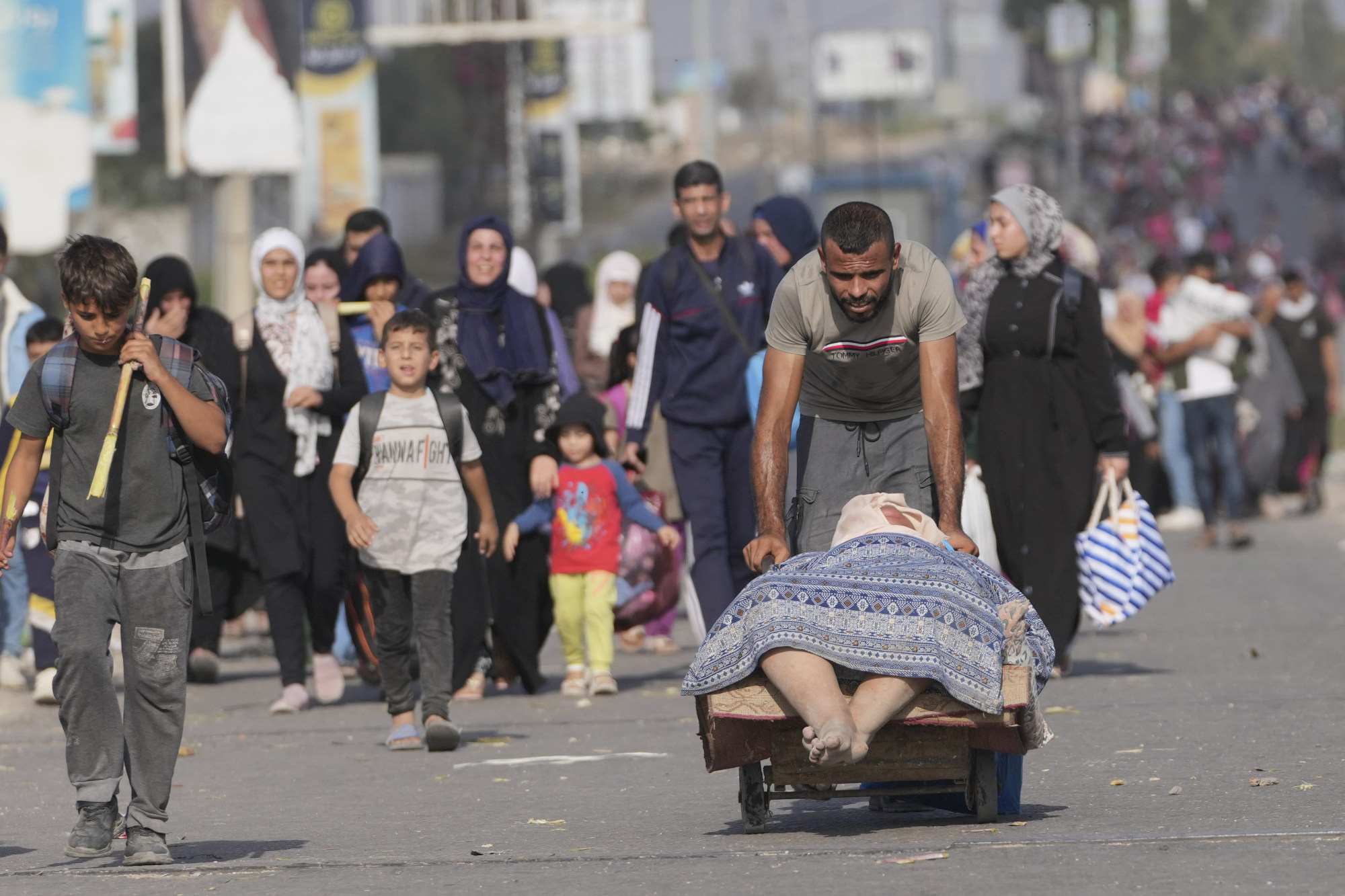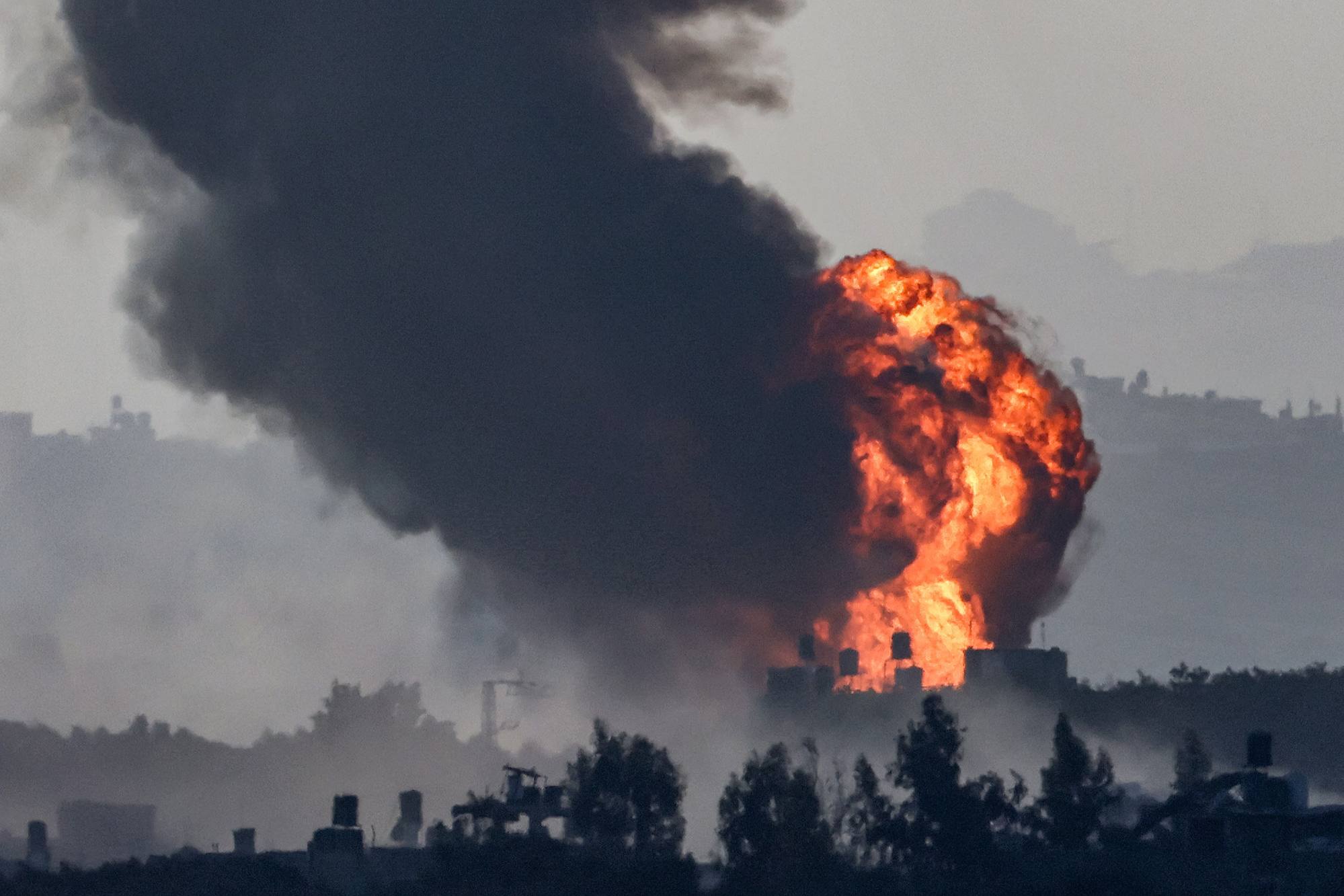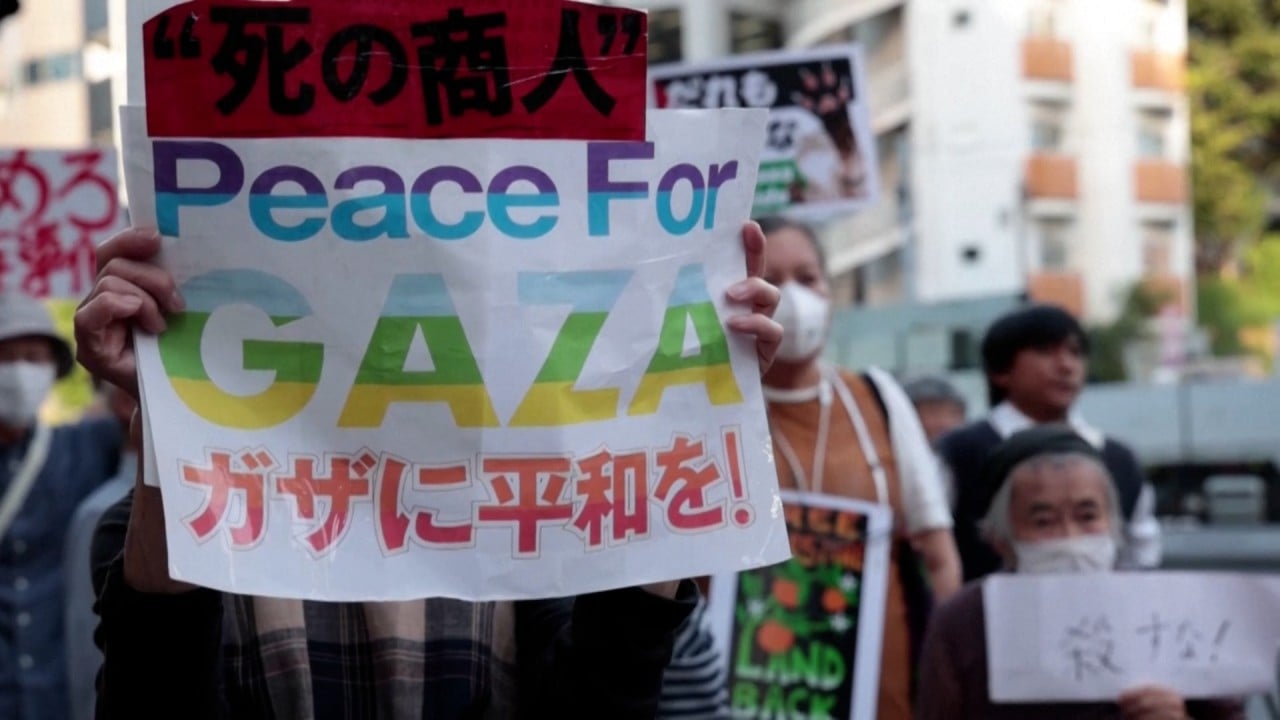The Group of Seven wealthy industrial nations issued a statement on Wednesday condemning Hamas and supporting Israel’s right to self-defence. But the group also called for the “unimpeded” delivery of food, water, medicine and fuel, and for “humanitarian pauses” in the fighting.
Israeli Prime Minister Benjamin Netanyahu has left open the possibility of small pauses to deliver aid, but has ruled out a broader ceasefire unless nearly 240 hostages taken by Hamas are freed.
“There are no limitations” on how long the war will last, Benny Gantz, a member of Israel’s decision-making war cabinet, said on Wednesday.
Israel-Gaza war: Singapore PM says 2 states only way amid ‘enormous tragedy’
Israel-Gaza war: Singapore PM says 2 states only way amid ‘enormous tragedy’
Gantz acknowledged that Israel does not yet have a vision for the Gaza Strip after it destroys Hamas rule, but said it will include an Israeli security presence in the territory after the war – a point that echoed comments earlier this week by Netanyahu, who said Israel would likely maintain security control of Gaza for an “indefinite period”.
The prime minister’s comments appear to have heightened US concerns. Secretary of State Antony Blinken on Wednesday called for a united and Palestinian-led government for Gaza and the West Bank after the war ends, as a move toward Palestinian statehood.
The US and Israel agree that the Hamas militant group cannot return to its rule of the Gaza Strip. But none of the ideas that Israeli officials have raised for Gaza’s governance after the war have included independent Palestinian rule as a credible possibility.
Support for the war remains strong inside Israel, where the focus has been on the fate of the hostages.
Over 70 per cent of Gaza’s population of 2.3 million have already left their homes since the war began but the number fleeing the north has dramatically accelerated.
Throngs of people filled Salah al-Din Street, Gaza’s main highway leading south. They appeared to be in greater numbers than Tuesday, when the UN said about 15,000 people streamed southward – which in turn was triple the number the day before.
Families walked together, with men and women carrying young children or pushing the elderly on makeshift carts. Most had only a few belongings in backpacks. A few families rode on donkey carts, holding white flags as they approached Israeli tanks. Israel extended the daily window for them to use the road to five hours.
Israeli forces advancing from the northwest along the Mediterranean coast have been clashing with fighters inside Shati refugee camp, a dense neighbourhood near Gaza City’s centre, two residents said.
US House censures lone Palestinian-American lawmaker over Israel comments
US House censures lone Palestinian-American lawmaker over Israel comments
The past nights have seen heavy bombardment of Shati, which houses Palestinian families who fled from or were driven out of what is now Israel during the 1948 war surrounding its establishment.
Other troops entered Gaza City’s Zeitoun district. One resident living near Shifa Hospital said he saw Israeli troops battling fighters on a street about 600 metres (yards) from the hospital.
“I’m hearing all kinds of horrible sounds. It is terrifying. There are intense air strikes,” he said. Both residents spoke on condition of anonymity for fear of reprisals.
The Israeli army’s chief spokesman, Rear Admiral Daniel Hagari, said on Wednesday the ground forces were deepening the offensive into Gaza City. The army said it killed one of Hamas’ leading developers of rockets and other weapons, without saying where he was killed.

Israel is focusing its operations on the city, which was home to some 650,000 people before the war and where the military says Hamas has its central command and a labyrinth of tunnels.
Hundreds of thousands of Palestinians have heeded Israeli orders in recent weeks to flee to the south to get out of the way of the ground assault.
For tens of thousands believed to remain, desperation was increasing.
“We didn’t have food or drinking water … They struck the bakeries. There is no life in Gaza,” said Abeer Akila, a woman fleeing south with her family.
‘Viet Cong times 10’: underground warfare awaits Israeli troops in Gaza
‘Viet Cong times 10’: underground warfare awaits Israeli troops in Gaza
The trickle of aid entering Gaza from the south is largely barred from going north, which has been without running water for weeks. The UN aid office said the last functioning bakeries shut down Tuesday for lack of fuel, water and flour. Hospitals running low on supplies are performing surgeries without anaesthesia.
Al-Quds Hospital has become completely cut off after all roads around it were bombed and has had to shut down most of its operations to ration fuel use. A convoy trying to bring medical supplies came under fire by Israeli forces and could not reach it, the Palestinian Red Crescent said. More than 14,000 displaced people are sheltering at the hospital, and bread supplies have run out, it said.
Majed Haroun, a teacher who remains in Gaza City, said women and children who lost families go door-to-door begging for food.
“No words can describe what we are experiencing,” he said.

The new arrivals from the north are squeezing into homes with extended family or in UN schools-turned-shelters where hundreds of thousands are taking refuge. At one, 600 people must share a single toilet, according to the UN office.
Israeli strikes have continued in the southern zone. One on Wednesday hit a family house in the Nuseirat refugee camp, killing at least 18 people and wounding dozens of others, according to Iyad Abu Zaher, director of Al-Aqsa Martyrs Hospital, where the dead and wounded were brought. He said the toll could rise as doctors and first responders searched the rubble.
Hundreds of trucks carrying aid have been allowed to enter Gaza from Egypt since Oct. 21.
But “there is an ocean of needs in Gaza right now, and what’s been getting in is a drop in the ocean. We need fuel, we need water, we need food, and we need medical supplies,” Dominic Allen of the United Nations Population Fund said, speaking from the West Bank.
Red Cross says humanitarian convoy hit by gunfire in Gaza City
Red Cross says humanitarian convoy hit by gunfire in Gaza City
A month of relentless bombardment in Gaza since the Hamas attack has killed more than 10,500 Palestinians – two-thirds of them women and minors, according to the Health Ministry in the Hamas-run territory. More than 2,300 others are believed to have been buried by strikes that in some cases have demolished entire city blocks.
More than 1,400 people have died in Israel since the start of the war, most of them civilians killed by Hamas militants during their incursion. Israel says 32 of its soldiers have been killed in Gaza since the ground offensive began, and Palestinian militants have continued to fire rockets into Israel on a daily basis.
Israeli officials say thousands of Palestinian militants have been killed, and blame civilian deaths on Hamas, accusing it of operating in residential areas. Gaza’s Health Ministry does not distinguish between civilians and combatants in its casualty reports.
The war has stoked wider tensions, with Israel and Lebanon’s Hezbollah militant group trading fire along the border. More than 160 Palestinians have been killed in the Israeli-occupied West Bank since the war began, mainly during violent protests and gun battles with Israeli forces during arrest raids. Some 250,000 Israelis have been forced to evacuate from communities along the borders with Gaza and Lebanon.


